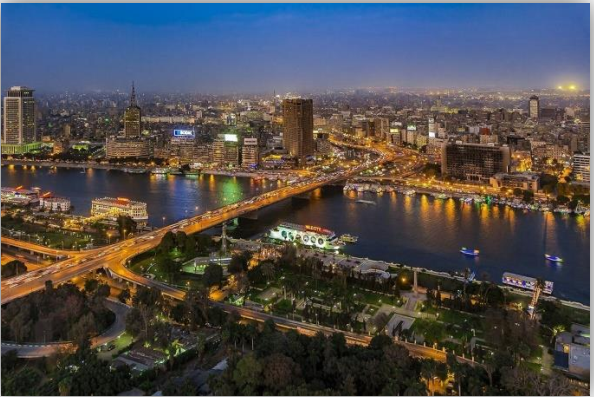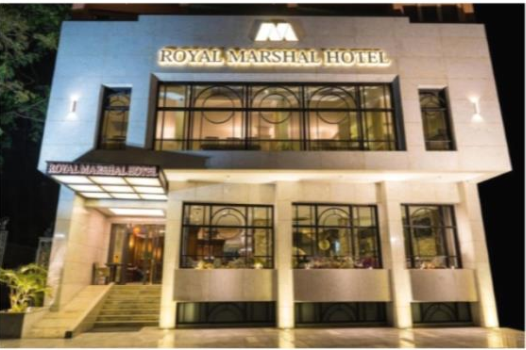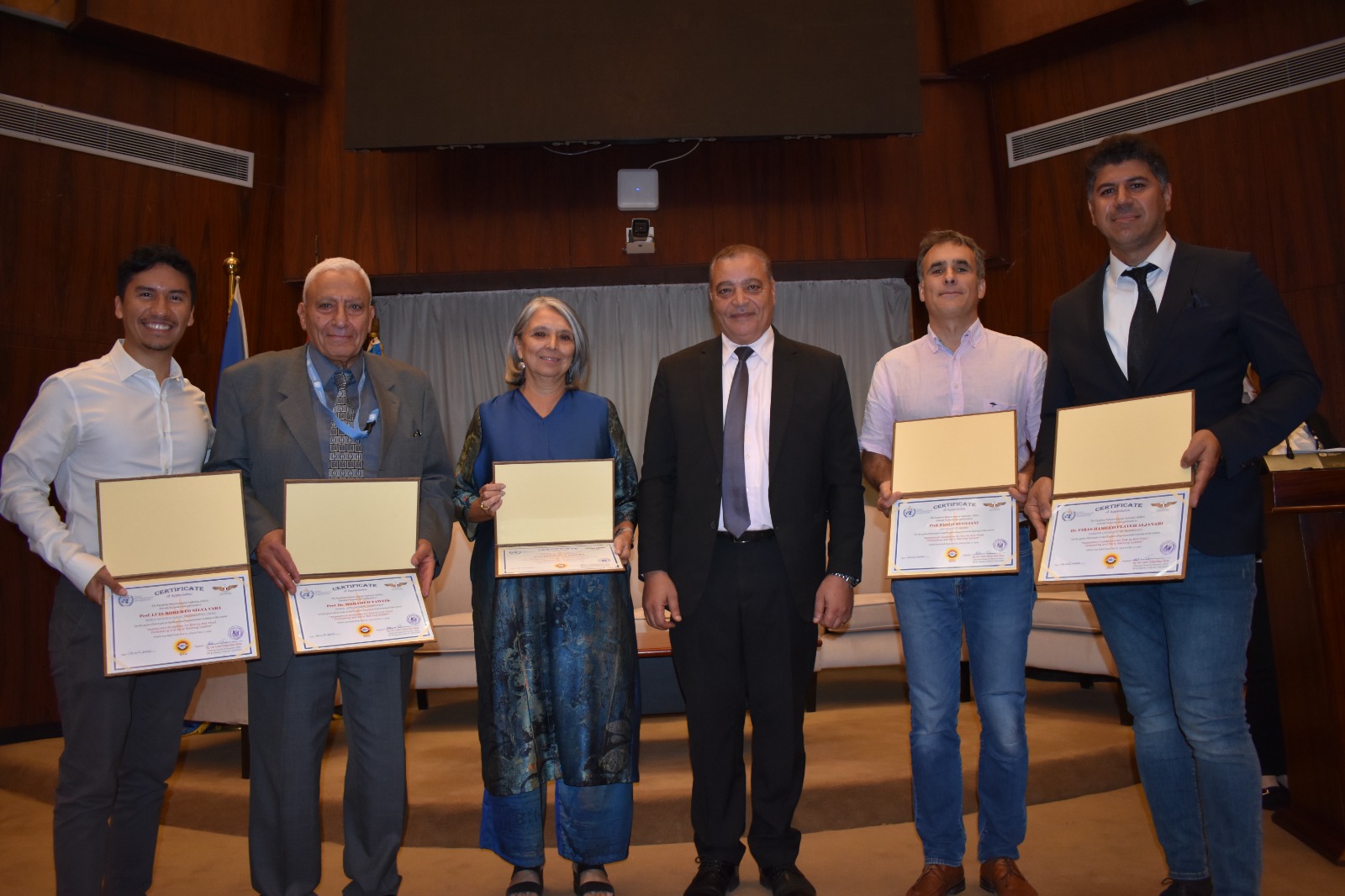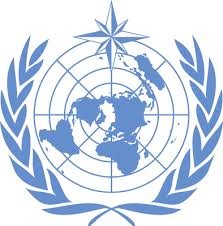Assessment Guidelines for End-to-End Flood Forecasting and Early Warning Systems
As countries can be affected by different types of floods, the End- to End Flood Forecast and Early Warning System (E2E FFEWS) is necessary for almost every National Hydrologic Service (NHS) or National Meteorological and Hydrological Service (NMHS). The Assessment Guidelines can be used by those NHSs, NMHSs and other national institutions involved in water-related activities interested in setting up a flood forecasting system or upgrading/improving an existing one.
The Assessment Guidelines include assessment tools that streamline the analysis of the E2E FFEWS components in terms of readiness and capabilities to generate and issue fit-for-purpose forecasts and warnings concerning riverine floods, flash floods, urban floods, as well as collateral mechanisms (besides precipitation) causing such floods: snowmelt or reservoir(s) operations.
Objective
This training aims to:
1-Develop capacity and expertise in NHSs and NMHSs to evaluate a country’s capability to perform flood forecasting
2-Offer an in-depth overview of the WMO Assessment Guidelines for End-to-End Flood Forecasting and Early Warning Systems focusing on the application tools.
3-Focus on the application of the guideline’s tools to cover real cases.
The program will run in RTC / Cairo and take place in person and offer a multi-layered program to bridge theoretical knowledge and the practical application of assessment tools while focusing on specific cases. The tools used will be those developed for the Assessment Guidelines1 ) the Assessment Matrix, which assists in assessing the country’s status in the end-to-end flood forecasting and early warning system
2) the SWOT Analysis applied after completing the Assessment Matrix, used to compile the information for the analysis.
The training intends to go beyond the theoretical aspects by providing practical skills and insights for participants to contribute effectively to enhancing their country’s flood forecasting systems.
A general outline of the content and methodology is presented below.
Part 2 – In-person Training:
Multi-Layer Program
1-Discussion on the development of the Assessment Guidelines, WMO Publication No.1286
2-Introduction to the Assessment Matrix and SWOT Analysis tools.
3-In-depth sessions led by experts focusing on applying tools and practical case studies.
4-Informative Sessions: Workshops tailored to participants’ interests and local contexts.
Problem-Based Learning (PBL) approach and Case Study development
1-Use the participants’ submissions from the EWS issues from their respective countries.
2-Issues selected for analysis and turned into case studies for Part 2.
3-Participants actively engage in problem-solving exercises based on these case studies.
References
Search WMO No 1286 on Google, and you should be directed to the publication. The link:
https://library.wmo.int/index.php?lvl=notice_display&id=22163
AGENDA for TRAINING WORKSHOP 13 – 17 October 2024, Cairo, Egypt
1. Opening Ceremony
• Opening Statements by:
• Egyptian Meteorological Authority (EMA)
• World Meteorological Organization (WMO)
• Guest of Honor
2. Overview– Assessment Guidelines for End-to-End Flood Forecasting and Early Warning Systems
3. Application of Assessment Guidelines in South Sudan
4. Country Presentations
5. Introduction and Discussions on
• Institutional
• Infrastructure
• Observations and Data Acquisition
• Historical and Ancillary Data
• Data Management
6. Introduction and Discussions on
◦ Meteorological Forecasts and Products
◦ Hydrological Models, Forecasts and Platforms
◦ Flood Forecasting Products
◦ Dissemination and Communication
◦ Staff Capabilities and Training
◦ Performance and Sustainability
7. Attendance to selected session(s) at Cairo Water Week
8. Preparing for SWOT Analysis
9. SWOT Analysis
◦ Performing the Analysis
◦ Presentations and Discussion of Results
10. Assessment Reports
11. Evaluation of Training
12. Certificates Award
13. Closing Ceremony
Work Program:
|
Sunday – 13 October 2024 |
||
| 08:30 – 09:00 |
Registration– All Participants (30 Min) |
|
| 09:00 – 09:30 |
Setting the Scene (30 Min) |
|
| 09:30 – 10:30 |
Opening Ceremony (60 Min) |
|
| 10:30 – 11:00 |
Tea and Coffee /Healthy Break (30 Min) |
|
| 11:00 – 12:30 |
1st Session Trainers (30 Min) |
|
| 12:30 – 13:30 |
Lunch Break (60 Min) |
|
| 13:30 – 14:15 |
2nd Session – Senior Consultant (MT) (45 Min) |
|
| 14:15 – 15:45 |
3rd Session Participants (90 Min) |
Systems (FFEWS)
|
| 16:00 – 16:30 |
Tea and Coffee /Healthy Break (30 Min) |
|
| 16:15 – 17:30 |
4th Session Trainers (Reggina) (75 Min) |
|
|
END OF DAY ONE |
||
| Monday – 14 October 2024 | ||
| 09:00 – 09:15 |
Form for Recording Daily Attendance — Participants (15 Min) |
|
| 09:15 – 09:45 |
Setting Working Day (30 Min) |
Setting the Groups Ensure everyone has the Matrix Tool downloaded Request Country Presentations to be selected for later discussion |
| 09:45 – 10:45 |
Topic I & II (60 Min) |
Introduction of Topics I & II (5 min)
Filling the Matrix topics I & II (55 Min) |
| 10:45 – 11:15 |
Tea and Coffee /Healthy Break (30 Min) |
|
| 11:15 – 11:45 |
Discussing Topics I and II(30 Min) |
Questions for Topics I and II |
| 11:45 – 12:30 |
Topic III (45 Min) |
Introduction of Topic III (5 min)
Filling the Matrix Topic III (25 Min) Explore two Auxiliary Matrices (15 min) |
| 12:30 – 13:30 |
Lunch Break (60 Min) |
|
| 13:30 – 14:00 |
Discussing Topic III (30 Min) |
Questions for topic III |
| 14:00 15:00 |
Topics IV and V (60 Min) |
Introduction of Topics IV and V (5 min)
Filling Matrix Topics IV and V (55 Min) |
| 15:00-16:00 |
Discussing Topics IV and V (60 Min) |
Questions Topic IV and V
Selected country Presentation(s) or Trainer case |
| 16:00 – 16:30 |
Tea and Coffee /Healthy Break (30 Min) |
|
| 16:30– 17:30 | Discussion on Data/Models(60 Min) | Presentations From Sta Fe on data “What you need and what you find” or Modeling. |
|
END OF DAY TWO |
||
|
Tuesday – 15 October 2024 |
||
| 09:00 – 09:15 |
Form for Recording Daily Attendance — Participants (15 Min) |
|
| 09:15 – 09:30 |
Setting Working Day (15 Min) |
Setting the Groups
Country Presentations to be selected for later discussion |
| 09:30 – 10:30 |
Topics VI &VII (60 Min) |
Introduction of the Topic VI and VII (5 min)
Filling Matrix for topic VI and VII (55 min) |
| 10:30 – 11:00 |
Tea and Coffee /Healthy Break (30 Min) |
|
| 11:00 – 12:00 | Discussing Topics VI and VII (60 Min) | Questions on topics VI and VII
Selected Presentation(s) |
| 12:00-12:30 | Topic VIII (30 min) | Introduction of the Topic VIII (5 min)
Filling Matrix for topic VIII (25 min) |
| 12:30 – 13:30 |
Lunch Break (60 Min) |
|
| 13:30 – 14:00 |
Topic IX (30 Min) |
Introduction of the Topics IX (5 min)
Filling Matrix for topics IX (25 Min) |
| 14:10 – 15:00 | Discussing Topics VIII and IX (60Min) | Questions on topic VIII and IX
Presentation Dissemination/Communication |
| 15:00-16:00 |
Topics X and XI (60 Min) |
Introduction of the Topics X and XI (5 min)
Filling Matrix for topics X and XI (25 Min) |
| 16:00 – 16:30 |
Tea and Coffee /Healthy Break (30 Min) |
|
| 16:30 – 17:15 |
Discussing Topics X and XI (60 min) |
Questions on Topics X and XI |
|
END OF DAY THREE |
||
|
Wednesday – 16 October 2024 |
||
| 08:00 – 08:15 |
Form for Recording Daily Attendance — Participants (15 Min) |
|
| 08:30 – 12:30 |
Attendance to CAIRO WATER WEEK |
|
| 13:30 – 14:30 |
Lunch Break (60 Min) |
|
| 14:30 – 14:45 |
Setting Afternoon Session (15 Min) |
Starting time depends on time of arrival from CWW
Setting the Groups Select Group leader |
| 14:45 – 15:00 |
Break (15 Min) |
|
| 15:00– 17:30 |
SWOT Analysis (30 Min) |
Introduction of the SWOT (5 min)
Preparing list of elements for the SWOT Perform SWOT Analysis |
|
END OF DAY FOUR |
||
|
Thursday – 17 October 2024 |
||
| 09:00 – 09:15 |
Form for Recording Daily Attendance — Participants (15 Min) |
|
| 09:15 – 09:30 |
Setting Working Day (15 min) |
Recap about the SWOT (5 min) |
| 09:30 – 10:30 |
SWOT Results (60 Min) |
SWOT Analysis Presentation by Group Leaders for groups #1 and# 2 |
| 10:30 – 11:00 |
Tea and Coffee /Healthy Break (30 Min) |
|
| 11:00 – 12:30 |
SWOT Results (60 Min) |
SWOT Analysis Presentation by Group Leaders for groups #3 and #4 |
| 12:30 – 13:30 |
Lunch Break (60 Min) |
|
| 13:30 – 14:30 |
Discussion on SWOT (60 Min) |
Questions on SWOT
How you use the SWOT Results Assessment Reports |
| 14;30- 15:30 |
Participants (60 Min) |
Complete Evaluations of Training
General Questions and discussions |
| 16:00 – 16:30 |
Tea and Coffee /Healthy Break (30 Min) |
|
| 16:30 – 17:30 |
Closing Ceremony (60 Min) |
Certificates Award |
|
END OF DAY FIVE |
||
|
Topic Number |
Name |
|
I |
Institutional |
|
II |
Infrastructure |
|
III |
Observation and Data Acquisition |
|
IV |
Historic and Ancillary Data |
|
V |
Data Management |
|
VI |
Meteorological Forecast and Products |
|
VII |
Hydrological Models, Forecasts, and Platforms |
|
VIII |
Flood Forecasting Products |
|
IX |
Dissemination and Communication |
|
X |
Staff Capabilities and Training |
|
XI |
Performance and Sustainability |
Trainers Bios:
Reggina Cabrera

I am a Civil Engineer with a Master’s in Civil and Environmental Engineering. I started working as a Hydraulic Engineer in Chile in 1980, and in 1989, I began my work as a Hydrologist at the United States Geological Survey. From 1994 until 2018, I worked in the National Weather Service in the USA. I began as a Hydrologic Forecaster and reached the position of Chief of the Hydrologic Services Division for the Eastern United States. Later, I became the Hydrologist-in-Charge of the Southeast River Forecast Center, I managed the center in providing hydrologic support to 26 Weather Forecast Offices in the Southeast United States and Puerto Rico.
I started collaborating with the WMO over 20 years ago, participating in several activities related to hydrologic forecasting. As a member of the WMO Standing Committee of Hydrologic Services (SC-HYD), I participate in several of their activities, including developing assessment guidelines for the End-to-End Early Warning Systems (E2E EWS) for flood forecasting. I tested the latter in the Dominican Republic in 2019. I also provide hydrologic support to and collaborate with other committees, such as the one for Disaster Risk Reduction (SC-DRR).
In 2022, as a World Bank consultant, I performed an assessment and developed a report in which I suggested a strategy to establish an end-to-end flood-integrated operational early warning system in Jamaica.
Paolo Reggiani

I hold of the Chair of Water Resources Management and Climate Impact Research at the University of Siegen, Germany. I graduated from the University of Trento, Italy, in 1994 in Environmental Engineering with a Masters in Engineering. In 2000, I was awarded a Ph.D. with ‘Distinction’ in Environmental Engineering from the University of Western Australia. Between 1999 and 2000, I worked at CSIRO Land and Water in Floreat Park, WA, where I developed modeling approaches to assess dryland salinity in Australia. After my return to Europe in late 2000 I participated as “Marie Curie Fellow” at the soil science lab “Laboratoire des Transferts en Hydrologie et Environnement” (LTHE) in Grenoble, France. In 2002 I took up an appointment as researcher and scientific consultant at the Dutch Institute Deltares. In 2014 I was appointed Full Professor at the University of Siegen.
During my career, I worked in various applied scientific and consulting projects in Asia, Africa and Europe. An important focal point of my scientific work has been the interface between numerical weather prediction and hydrological forecasting, including the area of forecasting uncertainty, as well as operational water management in data-poor areas. I have published more than 50 papers in different areas of hydrology, climate change impacts on water resources, flood forecasting, channel hydraulics and soil science. I also acted as coordinator for several projects, among which the FP5 project “European Flood Forecasting System (EFFS)”. I partake in several scientific boards on water resources issues. I frequently act as expert reviewer for scientific evaluations in the fields of catchment hydrology, flood forecasting, climate change impacts, geomorphology and natural hazard risk assessment. I also participate in advisory boards to the Commission of Hydrology at the WMO.
Firas Aljanabi

Dr. Firas Aljanabi is currently the coordinator of the Global Water and Climate Adaptation Centre. With a long-standing affiliation with TU Dresden in Germany, he has held the position of senior lecturer for several years, accumulating extensive expertise in capacity building and project management within the international landscape.
Before this, Dr. Aljanabi served as an expert and scientific officer at the World Meteorological Organization in Switzerland, Mozambique, and Myanmar while holding a significant role as a department head at the Ministry of Environment in Iraq.
Dr. Aljanabi’s academic background includes a Ph.D. in Climate Change and Water Resources Management, which he obtained in 2014. He also holds an M.Sc. in Hydro Science and Engineering from TU Dresden, Germany, which he achieved in 2009, and a BSc in Civil Engineering from Babylon University, Iraq, which he acquired in 2002. His diverse educational journey has equipped him with a well-rounded understanding of various disciplines related to water, climate change, early warning systems, and engineering. Dr. Aljanabi’s comprehensive experience and academic accomplishments position him as a respected professional in the field of global water and climate adaptation.
Luis Roberto Silva Vara

Roberto is a Mexican civil engineer with a Master’s in Environmental Science, focused on sustainable flood and water resources management. He joined WMO in 2014 and has worked in the Associated Programme on Flood Management (APFM), the Global Framework for Climate Services (GFCS), the Flash Flood Guidance System (FFGS), and other hydrology and water resources initiatives. He is overseeing the implementation of the Hydrological Status and Outlook System (HydroSOS) initiative, the implementation of Early Warning Systems for Floods in Central America and the Caribbean. Moreover, Roberto is a focal point for WMO hydrological activities in the Americas, facilitating communications and coordination with regional experts and WMO hydrological advisers and supporting technical assessments of hydromet services in Latin America.
Mohamed Tawfik

Mohamed Tawfik spent more than fifty years in the field of hydrology and water resources. He started his career in 1970 after completing a BSc in Civil Engineering followed by master’s degree in Hydrology from Padova University in Italy (1973). He worked in the Ministry of Irrigation in Egypt until 1974. During this short period, he gained good experience in addressing problems related to poor management and lack of appropriate tools and awareness for Integrated Water Resources Management.
In 1974, he was seconded to worke as a hydrologist in the HYDROMET SURVY Project for the Equatorial lakes in East Africa until 1991 when he was acting Director. Working on the project gave him the opportunity to deal with different issues related to WRM and Capacity Building (CB). Realizing his expertise in the water field, he was appointed as the Executive Director for the project in 1991. With assistance from international donors and the participating countries, he established “The Technical Committee for the Development and Environmental Protection of the Nile Basin” (TECONIL) in 1985.
In 1995, he joined the United Nations Economic Commission for Africa (UN-ECA) as a Regional Advisor for Water Resources Development and Management until 1997. His work with ECA involved support to the African countries for capacity development and enhancing strategies and policies for IWRM.
He joined the World Meteorological Organization (WMO) in 1997 until retirement in 2010 as Chief of Hydrology Division. His main task was to provide technical assistance and support member states to address their water issues in different WMO’s regions. His work with WMO added a new dimension to his experience. In 2011 WMO assigned him as Project Manager for IGAD-HYCOS. The project was completed successfully in 2017. Currently he is supporting WMO activities in South Sudan through the implementation of “Capacity and Needs Assessment for E2E- EWS” Project.
INFORMATION NOTE FOR PARTICIPANTS:

VISA & PASSPORT REQUIREMENTS
All participants need to verify visa requirements with the Egyptian embassy or consulate in their respective country. To obtain accurate information on regulations and deadlines for submitting visa applications, participants are advised to begin the process as early as possible.
For more information, visit the Ministry of Foreign Affairs of Egypt website. https://www.mfa.gov.eg On this website you can consult the classification of countries for exemption purposes and visa requirements to enter the country.
The hosting institution shall provide an invitation letter to support the visa application for participants requiring a visa to enter Egypt.
VENUE OF THE TRAINING
Venue of Week 1
The Hydraulics Research Institute (HRI), a leading institute under the National Water Research Center (NWRC), one of the nodes of the Egyptian Trainings Hub in Water and Climate, will host the training program entitled “Installation, Configuration and Measurement in Operational Water Measurement”.
HRI is in El-Qanater El-Khayreya, El-Qalyubia, Egypt. Also, different site visits will be chosen for the on-job and hands-on trainings.
Venue of Week 2
The Regional Training Center (RTC – Cairo), established in 1968 and accredited by the World Meteorological Organization (WMO) as a regional training center for Africa, will host a training course entitled “Evaluation Guidelines for Comprehensive Flood Forecasting and Early Warning System”.
The RTC-Cairo is located at the headquarter of the Egyptian Meteorological Authority (EMA), El-Khalifa El- Maamoun Street, Kobry El-Qubba, Cairo, Egypt.
NOTE:
The participants are kindly requested to bring their own laptops with them.
TRANSPORTATION
From/To the Airport
Royal Marshal Hotel is 11 Km from Cairo International Airport, and the hotel offers a transfer service between the hotel and Cairo Airport for $20 per person.(See Appendix A)
By Taxi
To reach the Royal Marshal Hotel from Cairo Airport, you can take a taxi (Approx. 25 –30 $)
In addition to the official taxis that can be hired at the airport exit (arrivals area, they only accept cash), transportation services such as Uber also operate in Egypt that offer cheaper rates. To take an Uber it is necessary to follow the pick-up instructions given by the mobile application.
IMPORTANT NOTE:
All the taxis parked in front of the arrival terminal have high level security permits and reliability to provide protection and safe service for all Cairo guests.
LOCAL TRANSPORTATION:
Local transportation between Royal Marshal Hotel and the venue will be arranged by the host every day.
ACOMODATION/HOTEL INFORMATION
The Egyptian Meteorological Authority has reserved 21 rooms in Royal Marshal Hotel, which is about five minutes away from the event venue, with special rates:
- (Single room) at 50 $ per night, the rate includes buffet breakfast and Wi Fi internet.
- (Double room) at 70 $ per night, the rate includes buffet breakfast and Wi Fi internet.
The room reservation will be made by the organizer. For this purpose, please fill the form in Annex 1 as soon as possible and send it to the local organizer, Mr. Rafie Fouda, (rafie.fouda@aol.com)
 |
|
Royal Marshal Hotel 4A, Al Khalifa El Maamoun St. Roxy Cairo, Egypt Tel.: (202)24546700– 24550001– 24550011 – 24550050 Fax: (202) 24550197 E-mail: royal@marshalhotels.com |
CATERING
Coffee & tea breaks will be offered by the host every morning and afternoon. The lunch will be served at the venue.
CAIRO’s CLIMATE IN OCTOBER 2024
Cairo in October exhibits the beginning of the autumn season. During this time, you can expect warm temperatures during days and mild temperatures during nights. The average daytime temperatures range from 29-33°C (84-91°F), while evenings can be cooler, around 16-19°C (61-66°F). We recommend packing summer clothing and brining light sweaters or jackets. There is only a very little probability of rainfall in Cairo in October, so no need for umbrella or raincoat.
OTHER USEFUL TIPS
Currency and Banks
The official unit of currency is the Egyptian pound. ATMs are plentiful throughout the country and banks. Most hotels will exchange foreign currency or traveler’s checks. Also, there are currency exchange offices available in Cairo City.
Banking hours are generally from 08:30 AM to 14:00 PM on week days, while banking hours in Cairo airport 24 hours a day.
The average exchange rate for currencies on Friday, September 23, 2024 is as follows:
– 1 USD = 48.66LE
– 1 EUR = 54.14LE
You can also follow the exchange rates at the Central Bank of Egypt through the following link: https://www.cbe.org.eg/en/economic-research/statistics/exchange-rates
ELECTRICITY
The voltage in Egypt is 220 V/50 HZ The plugs used in Egypt are “C/F”

TIME ZONE
Standard time in Egypt: GMT + 3 Cairo (Light – Sunny hours)
CONTACT
LOCAL ORGANIZER:
1st week, 6-10 October 2024 2nd week, 13-17 October 2024
|
Hydraulics Research Institute (HRI) |
|
Focal Point for technical and logistical services: |
|
Dr. Samy Abdel-Fattah Saad Head of the Hydraulic institute Mobile: +201005836160 |
|
Focal Point for technical: |
|
Dr. Ahmed Mahmoud Mohamed Ibraheem Tel.: +201060128712/ +201143726392 |
|
Nile Water Sector (NWS) |
|
Ms. Sara Mohamed Zouriq Mobile: +2010 91199797 |
|
Egyptian Meteorological Authority (EMA) |
|
Focal Point for Technical Services: |
|
Dr. Mohamed Tawfik Undersecretary for Regional Training Centre Mob. +201002415418 E-mail: mohamedtawfik99@gmail.com Dr. Amira Samy Mohamed Director General of Programs & Evaluation Mob. +201003191820 E-mail: amiraebrahim93@yahoo.com Dr. Amira Nasser Mustafa Deputy Director of the Technical Office Mob. +201007676001 |
|
Focal Point for Logistics Support |
|
Mr. Rafie Fouda Public Relations& Media Director Mob.: +201222208889 |
We look forward to welcoming you to Cairo.
Appendix A
Royal Marshal Hotel Reservation Form
|
Personal Data |
||||||
|
Guest Name |
Ms/Mr ………………………………………………………………………………….. |
|||||
|
Nationality |
Passport No. |
Phone No. |
||||
|
|
||||||
|
Reservation Data |
||||||
|
Room Type |
Single |
Room Price |
( US$) |
|||
|
Double |
||||||
|
Number of nights |
Check-in date |
/ / |
Check-out date |
/ / |
||
|
Transportation Service |
Airport/ Hotel |
|||||
|
Hotel/ Airport |
||||||
|
Travel Information |
||||||
|
Place & Date of Arrival |
Airline/Flight No. |
Arrival Terminal |
||||
|
Place & Date of Departure |
Airline/Flight No. |
Departure Terminal |
||||
At The End







المزيد
دورة تدريبية عن التنبؤ الشامل لتلوث الهواء في افريقيا